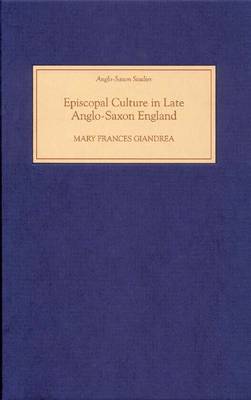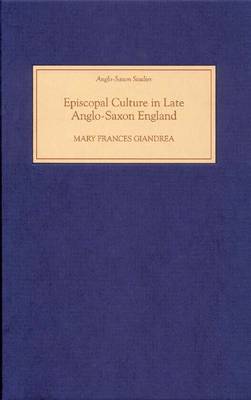
En raison d'une grêve chez bpost, votre commande pourrait être retardée. Vous avez besoin d’un livre rapidement ? Nos magasins vous accueillent à bras ouverts !
- Retrait gratuit dans votre magasin Club
- 7.000.000 titres dans notre catalogue
- Payer en toute sécurité
- Toujours un magasin près de chez vous
En raison de la grêve chez bpost, votre commande pourrait être retardée. Vous avez besoin d’un livre rapidement ? Nos magasins vous accueillent à bras ouverts !
- Retrait gratuit dans votre magasin Club
- 7.000.0000 titres dans notre catalogue
- Payer en toute sécurité
- Toujours un magasin près de chez vous
Description
A radical new interpretation of the Anglo-Saxon episcopate, bringing to light previously unused evidence. This first full-length study of the Anglo-Saxon episcopate explores the activities of the bishops in a variety of arenas, from the pastoral and liturgical to the political, social, legal and economic, so tracing the development ofa particularly English episcopal identity over the course of the tenth and eleventh centuries. It makes detailed use of the contemporary evidence, previously unexploited as diffuse, difficult and largely non-narrative, rather than that from after the Norman Conquest; because this avoids the prevailing monastic bias, it shows instead that differences in order [between secular and monk-bishops] had almost no effect on their attitudes toward their episcopalroles. It therefore presents a much more nuanced portrait of the episcopal church on the eve of the Conquest, a church whose members constantly worked to create a well-ordered Christian polity through the stewardship of the English monarchy and the sacralization of political discourse: an episcopate deeply committed to pastoral care and in-step with current continental liturgical and theological developments, despite later ideologically-charged attempts tosuggest otherwise; and an institution intricately woven, because of its tremendous economic and political power, into the very fabric of English local and regional society. MARY FRANCIS GIANDREA teaches at George Mason University
Spécifications
Parties prenantes
- Auteur(s) :
- Editeur:
Contenu
- Nombre de pages :
- 264
- Langue:
- Anglais
- Collection :
- Tome:
- n° 7
Caractéristiques
- EAN:
- 9781843832836
- Date de parution :
- 18-01-07
- Format:
- Livre relié
- Format numérique:
- Genaaid
- Dimensions :
- 162 mm x 241 mm
- Poids :
- 557 g

Les avis
Nous publions uniquement les avis qui respectent les conditions requises. Consultez nos conditions pour les avis.






